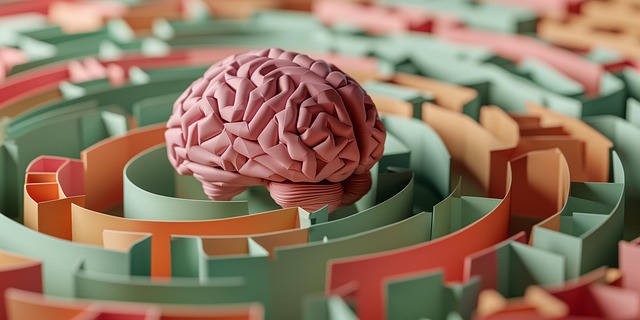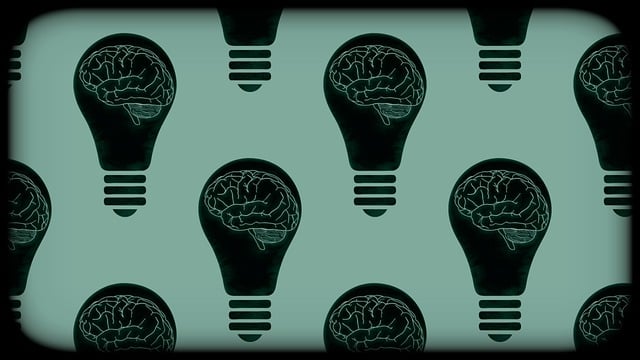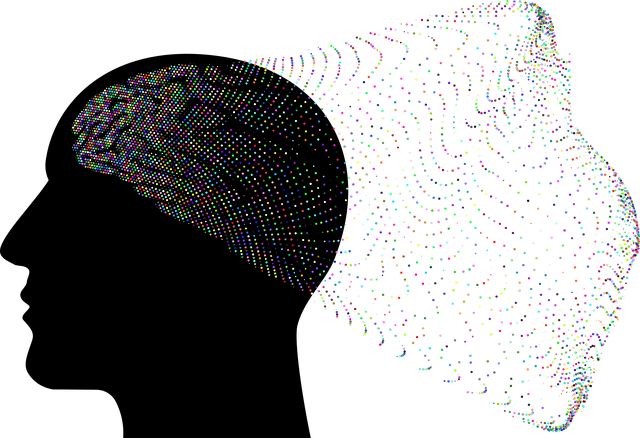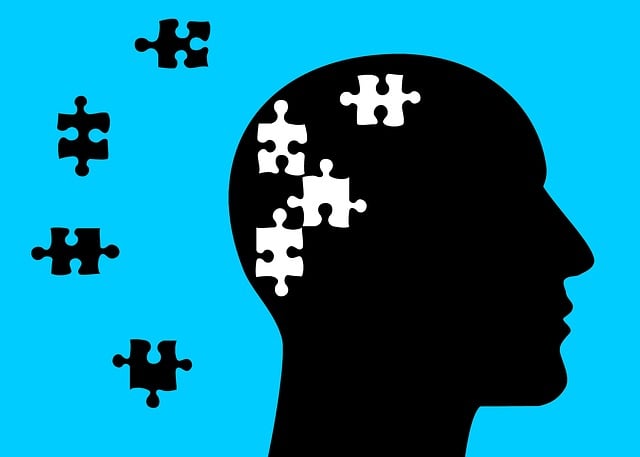Centennial Adjustment Disorder (CAD) is a mental health condition characterized by anxiety, depression, and related challenges triggered by life transitions. Effective CAD therapy integrates mindfulness, confidence-building, and stigma reduction techniques. Education plays a vital role in combating CAD by dispelling myths, teaching emotional regulation, and promoting early intervention through programs integrated into school curricula or community workshops. These educational initiatives foster open dialogue, reduce stigma, and enhance well-being. In therapy, evidence-based practices like CBT, combined with holistic approaches, group support, and self-esteem improvement, empower individuals to manage symptoms. Measuring program success using pre-post tests, focus groups, and longitudinal studies shows improved awareness, coping, and reduced CAD symptoms, indicating enhanced resilience and emotional well-being.
Mental health education programs play a pivotal role in fostering well-being and supporting individuals affected by conditions like Centennial Adjustment Disorder (CAD). This article explores key aspects of CAD, highlighting its symptoms and impact on daily life. We delve into the transformative power of education in promoting mental health awareness and providing essential support. Furthermore, it offers practical guidance on designing effective therapy programs, emphasizing key components and strategies to enhance treatment outcomes. Finally, we discuss measuring success and the long-term benefits of these educational initiatives, particularly focusing on CAD therapy.
- Understanding Centennial Adjustment Disorder: Symptoms and Impact
- The Role of Education in Mental Health Awareness and Support
- Designing an Effective Therapy Program: Key Components and Strategies
- Measuring Success and Long-term Benefits of Mental Health Education Programs
Understanding Centennial Adjustment Disorder: Symptoms and Impact

Centennial Adjustment Disorder (CAD) is a mental health condition that affects individuals’ ability to cope with major life transitions and stressors. Characterized by persistent feelings of anxiety, depression, and a general sense of unease, CAD can significantly impact daily functioning and overall well-being. The disorder often manifests as a reaction to significant life events, such as starting college, entering the workforce, or experiencing trauma, where individuals struggle to adjust and adapt.
Symptoms of CAD include irritability, difficulty concentrating, insomnia, and changes in appetite. Those affected may also exhibit avoidance behaviors, social withdrawal, and a heightened sense of worry or fear. The impact of CAD extends beyond emotional distress; it can lead to academic or professional challenges, strained relationships, and physical health problems. However, with the right support, Centennial Adjustment Disorder therapy can be highly effective. Techniques such as mindfulness meditation have proven beneficial in managing symptoms by promoting relaxation, improving focus, and fostering a sense of calm. Additionally, confidence-boosting strategies and mental illness stigma reduction efforts play crucial roles in helping individuals with CAD lead fulfilling lives.
The Role of Education in Mental Health Awareness and Support

Education plays a pivotal role in fostering mental health awareness and providing essential support for individuals dealing with various challenges, including conditions like Centennial Adjustment Disorder (CAD). Through comprehensive educational programs, communities can dispel myths surrounding mental illness, encouraging early intervention and reducing the stigma that often prevents people from seeking help. By equipping individuals with knowledge about emotional regulation techniques and coping mechanisms, these initiatives empower them to manage their well-being effectively.
Incorporating mental health education into school curricula or community workshops facilitates open conversations about mental health, fostering an environment where questions are encouraged, and support is readily available. This proactive approach not only helps in the early detection of mental health issues but also promotes positive thinking and resilience. As a result, individuals learn to navigate life’s challenges with greater equanimity, ultimately contributing to improved overall well-being and enhanced recovery outcomes for those dealing with conditions like CAD or other forms of mental illness.
Designing an Effective Therapy Program: Key Components and Strategies

Designing an effective therapy program requires careful consideration of key components to ensure it addresses the unique needs of individuals struggling with mental health issues, such as Centennial Adjustment Disorder (CAD). Firstly, integrating evidence-based practices validated through research ensures the program’s efficacy and aligns with best practices in mental health treatment. Techniques like cognitive-behavioral therapy (CBT) have shown significant benefits for managing CAD symptoms, targeting negative thought patterns, and promoting healthier coping mechanisms.
Additionally, a holistic approach that combines individual therapy sessions with group support can foster a sense of community and reduce feelings of isolation. Encouraging emotional well-being promotion techniques like mindfulness practices, stress management strategies, and social skills training empowers individuals to regulate their emotions and navigate interpersonal interactions more effectively. Incorporating self-esteem improvement exercises tailored to CAD-related challenges helps build resilience and enhances overall mental fortitude. Risk management planning for mental health professionals is also crucial to ensure a safe and supportive therapy environment.
Measuring Success and Long-term Benefits of Mental Health Education Programs

Measuring the success and long-term benefits of mental health education programs is paramount to understanding their impact on individuals and communities. This evaluation process involves assessing key outcomes such as increased awareness, improved coping mechanisms, and reduced stigma associated with mental health issues. By utilizing robust methodologies, including pre-post tests, focus groups, and longitudinal studies, researchers can gauge the effectiveness of these programs.
One promising metric is the reduction in symptoms related to conditions like Centennial Adjustment Disorder Therapy, suggesting enhanced resilience and emotional well-being. Additionally, measuring participants’ engagement in self-care practices, such as Burnout Prevention strategies and Mindfulness Meditation techniques, offers insights into sustained behavioral changes. Beyond individual benefits, examining the broader societal impact through Mental Health Policy Analysis and Advocacy can reveal how these programs contribute to more inclusive and supportive communities.
Mental health education programs, with a focus on addressing Centennial Adjustment Disorder (CAD) through tailored therapy, offer profound long-term benefits. By incorporating key components such as comprehensive symptom understanding, peer support, and evidence-based strategies, these initiatives foster resilience and improve overall well-being. Measuring success through qualitative feedback and quantitative outcomes ensures continuous improvement, ultimately revolutionizing how society supports individuals affected by CAD.














